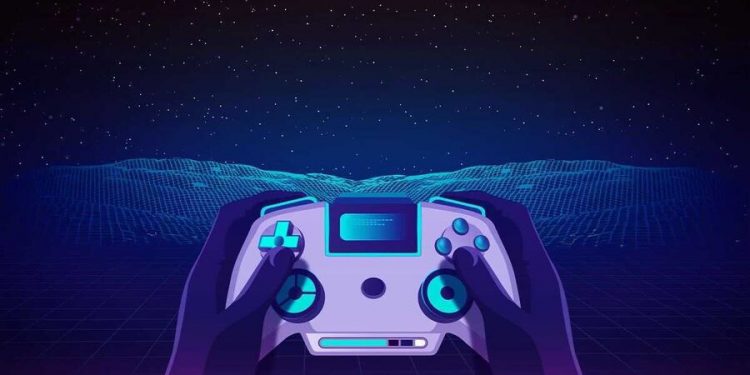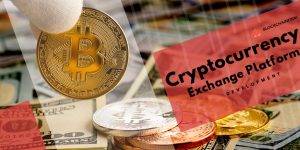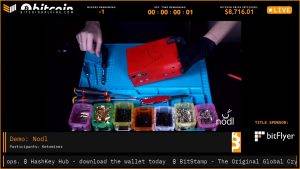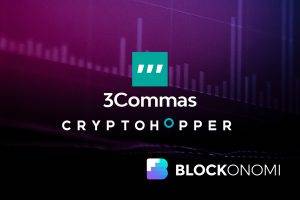Introduction
Blockchain technology has gained significant attention in recent years for its potential to revolutionize various industries, including gaming. Traditional game monetization models often come with challenges such as lack of transparency, limited ownership, and centralized control. However, blockchain offers a decentralized and secure solution that can transform the way games are monetized. In this article, we will explore how blockchain can revolutionize game monetization models, empowering both developers and players.
Understanding Game Monetization
Game monetization refers to the methods through which developers generate revenue from their games. Traditionally, this has been achieved through upfront game purchases, in-app purchases, or advertising. However, these models often restrict ownership and control, leading to a lack of transparency and fairness for players.
Challenges in Traditional Models
Traditional game monetization models face several challenges. Players often feel disconnected from the value they invest in games due to limited ownership of in-game assets. Moreover, centralized control allows game publishers to modify rules, change prices, or even shut down games entirely, leaving players with little recourse. These challenges can create a sense of distrust and dissatisfaction among gamers.
Introduction to Blockchain

Blockchain is a distributed ledger technology that allows for transparent and secure record-keeping. It operates through a decentralized network of computers, eliminating the need for intermediaries. Each transaction is recorded in a block, forming a chain of blocks, hence the name “blockchain.”
Blockchain in the Gaming Industry
The gaming industry can benefit greatly from blockchain technology. By integrating blockchain into game monetization models, developers can provide players with true ownership and control over in-game assets. This shift can foster a stronger sense of engagement and investment in the gaming community.
Benefits of Blockchain in Monetization
- Tokenization of In-Game Assets: Blockchain enables the tokenization of in-game assets, representing them as unique digital assets that can be traded or sold. This allows players to truly own their virtual possessions, increasing their value and providing opportunities for real-world value exchange.
- Decentralized Gaming Platforms: Blockchain-based platforms offer decentralized infrastructure, reducing the reliance on a single entity. This ensures that games continue to exist even if the original developers or publishers discontinue their support. Players can enjoy a more reliable and sustainable gaming experience.
- Smart Contracts and Transparency: Blockchain utilizes smart contracts, which are self-executing agreements with predefined rules. These contracts automate various aspects of game monetization, such as revenue sharing, item trading, and digital rights management. Smart contracts enhance transparency, as all transactions are recorded and can be audited by anyone on the blockchain.
- Reducing Fraud and Cheating: Blockchain’s immutability and transparency make it difficult for fraudulent activities to occur within games. Cheating and unauthorized modifications become highly improbable, ensuring a fair and secure environment for players.
- Enhancing Ownership and Value: By enabling true ownership of in-game assets, blockchain allows players to buy, sell, or trade their virtual possessions freely. This fosters a thriving secondary market where the value of rare or desirable assets can appreciate.
Community Engagement and Rewards
In addition to the above benefits, blockchain-based game monetization models can also enhance community engagement and provide unique rewards for players. Community members can actively participate in the governance of the game, influencing decisions and shaping its future. This sense of ownership and involvement strengthens the bond between players and developers, creating a more vibrant and dedicated player base.
Potential Limitations
While blockchain has the potential to revolutionize game monetization, it’s important to consider some potential limitations. One such limitation is the scalability of blockchain networks, as they currently face challenges in handling a large number of transactions simultaneously. Additionally, the adoption of blockchain technology requires education and infrastructure development, which may take time to implement across the gaming industry.
Future of Game Monetization
As blockchain technology continues to evolve, the future of game monetization looks promising. Developers are exploring innovative ways to leverage blockchain to create immersive and rewarding gaming experiences. With the increased adoption and integration of blockchain into mainstream gaming, we can expect to see a shift towards more player-centric and transparent monetization models.
Implementing Blockchain in Game Development
Integrating blockchain technology in game development offers numerous opportunities to enhance the gaming experience and revolutionize the industry. Let’s explore some key aspects of implementing blockchain in game development:
1. Immutable Game Assets
Blockchain provides an immutable and transparent ledger that can be utilized to create unique and scarce in-game assets. By tokenizing these assets on the blockchain, developers can ensure their authenticity, scarcity, and provenance. This opens up possibilities for creating rare, collectible items that hold significant value for players.
2. Player-driven Economies
Blockchain enables the creation of player-driven economies within games. By utilizing digital currencies or tokens on the blockchain, players can participate in decentralized marketplaces to buy, sell, and trade in-game assets. This empowers players with true ownership and control over their virtual possessions, fostering a vibrant and self-sustaining ecosystem.
3. Non-Fungible Tokens (NFTs)
Non-fungible tokens (NFTs) have gained immense popularity in recent years, especially in the art and collectibles space. In game development, NFTs can be used to represent unique and indivisible in-game assets, such as rare weapons, character skins, or virtual real estate. NFTs enable verifiable ownership and facilitate the creation of a thriving secondary market where players can freely trade their valuable assets.
4. Decentralized Governance
Blockchain introduces decentralized governance models for game development. Through the use of blockchain-based voting systems, players can actively participate in decision-making processes, such as game updates, rule changes, or content additions. This fosters a sense of community involvement and gives players a voice in shaping the direction of the game they love.
5. Cross-Platform Interoperability
Blockchain has the potential to enable cross-platform interoperability, allowing players to use their in-game assets across different games or virtual worlds. By utilizing standardized protocols and smart contracts, players can seamlessly transfer their assets between compatible games, enhancing the value and utility of their virtual possessions.
6. Funding Game Development through Token Sales
Blockchain technology provides an alternative funding mechanism for game development through Initial Coin Offerings (ICOs) or token sales. Developers can create and sell utility tokens that grant access to exclusive in-game content, early access, or other benefits. This decentralized crowdfunding approach allows developers to raise funds directly from their target audience and incentivizes early adopters.
7. Anti-Piracy Measures
Blockchain’s decentralized nature and cryptographic security can help combat piracy issues in the gaming industry. By leveraging blockchain technology, developers can create secure distribution platforms where games are stored and accessed through encrypted channels. This reduces the risk of unauthorized copying and distribution, protecting intellectual property rights.
Implementing blockchain in game development offers exciting possibilities for creating immersive, player-centric experiences. As developers continue to explore and innovate with blockchain technology, the gaming industry is poised for a transformative shift towards more transparent, inclusive, and rewarding game ecosystems.
Blockchain and Virtual Reality (VR) Gaming
Virtual Reality (VR) gaming has gained significant popularity in recent years, offering immersive and interactive experiences for players. When combined with blockchain technology, VR gaming can reach new heights of innovation and engagement. Let’s explore the potential impact of blockchain on VR gaming:
1. Authenticating Virtual Assets
Blockchain can provide a transparent and secure system for authenticating virtual assets in VR games. By tokenizing virtual items or properties on the blockchain, players can have verifiable ownership and provenance of their in-game assets. This ensures that rare or valuable virtual items retain their uniqueness and value, even as they are traded or used in different VR environments.
2. Virtual Land Ownership
In VR gaming, virtual worlds often feature vast landscapes or environments that can be explored and inhabited by players. Blockchain can introduce a decentralized system for virtual land ownership, allowing players to purchase, trade, and develop virtual properties. These blockchain-based land registries enable players to have true ownership rights and control over their virtual territories, creating a thriving economy within the VR ecosystem.
3. Cross-Platform Compatibility
Blockchain technology can facilitate cross-platform compatibility in VR gaming. By utilizing interoperable standards and protocols, players can seamlessly transfer their VR assets and avatars across different VR platforms or games. This enables a seamless and connected experience for players, regardless of the specific VR hardware or software they use.
4. Secure Digital Identities
Blockchain can enhance the security and privacy of players’ digital identities in VR gaming. Through the use of decentralized identity solutions, players can have control over their personal information and choose what data to share within the VR environment. This ensures a more secure and trusted experience, protecting players from identity theft or unauthorized access to their personal information.
5. Incentivizing VR Content Creation
Blockchain-based systems can introduce incentives for VR content creators. Through tokenized reward systems, players can directly support and incentivize the development of high-quality VR content, such as games, experiences, or virtual items. This fosters a collaborative and thriving ecosystem where creators are rewarded for their contributions, leading to a more diverse and engaging VR gaming landscape.
6. Transparent and Fair VR Competitions
Blockchain technology can introduce transparency and fairness to VR competitions and eSports events. By recording competition results and player performance on the blockchain, it becomes virtually impossible to manipulate or alter the outcome. This ensures a level playing field for all participants and enhances the integrity of VR competitive gaming.
7. Decentralized VR Marketplaces
Blockchain-powered decentralized marketplaces can revolutionize the buying and selling of VR assets. Players can trade virtual items, avatars, or experiences directly with each other using smart contracts, eliminating the need for intermediaries. This creates a peer-to-peer economy where players have more control over their transactions and can freely exchange VR assets with the wider gaming community.
The integration of blockchain technology with VR gaming opens up endless possibilities for immersive and decentralized experiences. As the synergy between blockchain and VR continues to evolve, we can expect a future where players have greater ownership, security, and interconnectedness within the virtual realms.
Conclusion
Blockchain technology holds immense potential in revolutionizing game monetization models. By providing true ownership, transparency, and decentralization, blockchain empowers both developers and players, fostering trust, engagement, and value within the gaming community. As the gaming industry embraces blockchain, we can look forward to a future where game monetization becomes more fair, rewarding, and inclusive.








